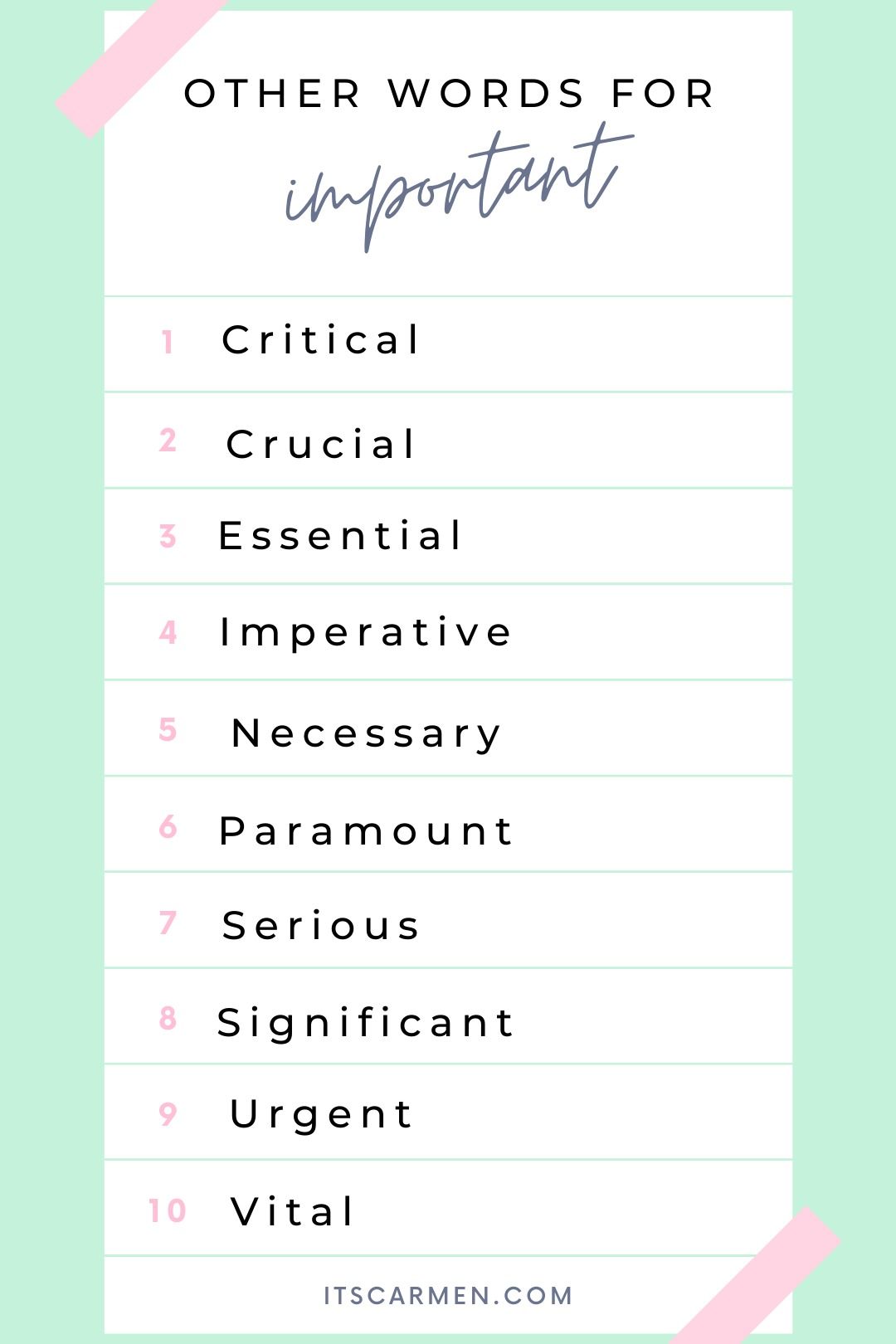In our daily conversations and writing, we often find ourselves searching for another word for “important” to add variety and depth to our language. Whether you’re crafting a compelling speech, writing an engaging article, or simply trying to enhance your vocabulary, understanding the nuances of synonyms can significantly elevate your communication skills.
Key Takeaways
- Discover a variety of synonyms for “important” to enhance your vocabulary.
- Understand the subtle differences between synonyms to use them effectively.
- Learn how to integrate these synonyms naturally into your writing and speech.
Why Finding Synonyms is Essential
Language is a powerful tool, and the words we choose can have a significant impact on how our message is perceived. Using synonyms not only helps to avoid repetition but also allows us to convey precise meanings and emotions. When we search for another word for “important,” we are essentially seeking to broaden our linguistic horizons and communicate more effectively.
Understanding the Context
Before diving into a list of synonyms, it’s crucial to understand the context in which you intend to use them. The word “important” can describe a wide range of situations, from emphasizing the significance of an event to highlighting the value of an idea. Therefore, selecting the right synonym depends on the specific context you are addressing.
Common Synonyms for “Important”
Here are some commonly used synonyms for “important,” each carrying its own subtle connotations:
- Significant: Often used to denote something that has a noticeable impact or is worthy of attention.
- Crucial: Implies an essential or decisive role in determining an outcome.
- Vital: Suggests something necessary for the success or continued existence of something else.
- Essential: Indicates something fundamental or indispensable.
- Pivotal: Refers to something of central importance that can influence the outcome of events.
- Paramount: Implies the highest level of importance or priority.
- Imperative: Conveys a sense of urgency or necessity.
- Influential: Describes something that has the power to affect or shape outcomes.
Choosing the Right Synonym

While these synonyms can often be used interchangeably, understanding their nuances can help you choose the most fitting word for your specific needs. For instance, if you are describing a life-saving medical procedure, “vital” might be more appropriate than “significant” due to its connotation of necessity.
Integrating Synonyms into Your Writing
Once you’ve selected the appropriate synonym, the next step is to integrate it seamlessly into your writing. Here are some tips to ensure a natural flow:
- Understand Your Audience: Tailor your language to match the comprehension level and interests of your audience.
- Maintain Consistency: Ensure that your choice of synonyms aligns with the overall tone of your piece.
- Use Varied Sentence Structures: Incorporate different sentence types to maintain reader interest and enhance readability.
- Practice Moderation: Avoid overloading your text with synonyms, which can lead to confusion and dilute the impact of your message.
Enhancing Communication with Synonyms
Expanding your vocabulary with synonyms for “important” can significantly enhance your communication skills. This linguistic flexibility allows you to express ideas more vividly and persuasively, whether you’re engaging in casual conversation or professional discourse.
Practical Applications

Consider the following scenarios where synonyms for “important” can be effectively employed:

- Business Presentations: Use “crucial” or “pivotal” to emphasize key data points or strategic initiatives.
- Academic Writing: Opt for “significant” or “paramount” to highlight research findings or theoretical contributions.
- Everyday Conversations: Choose “vital” or “essential” to stress the importance of personal commitments or relationships.
finding another word for “important” is more than just a linguistic exercise; it’s a way to enhance your communication and convey your ideas more effectively. By understanding the subtle differences among synonyms and integrating them thoughtfully into your language, you can elevate your expression and connect more deeply with your audience. So, the next time you find yourself reaching for the word “important,” consider the rich tapestry of synonyms at your disposal and choose the one that best fits your context.


